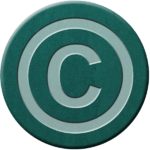Against the backdrop of a passionate debate over the EU's new copyright directive, and as New Zealand invites submission and feedback on its review of its Copyright Act 1994, Orna Ross explains ALLi's “Independent Authors' Bill of Rights (Copyright)” approach.
 Copyright is currently a contentious issue for publishers, including self-publishing authors.
Copyright is currently a contentious issue for publishers, including self-publishing authors.
A hotly-contested Copyright Directive in the EU has seen millions of Internet users, including authors, uniting online and on the streets to demand their right to an Internet that is free to communicate without algorithmic censors or arbitrary licensing requirements.
 The Directive saw large competing interests of publishing platforms like Facebook and Google (Big Tech), global media corporations like Penguin Random House and News International (Big Content) and legislating territories of the EU (Big Legal) standing up to each other.
The Directive saw large competing interests of publishing platforms like Facebook and Google (Big Tech), global media corporations like Penguin Random House and News International (Big Content) and legislating territories of the EU (Big Legal) standing up to each other.
In all of this, the needs of the individual, independent, self-publishing author are largely lost.
Despite user resistance, the Directive has passed, to the approval of some author associations. Unless challenged, it is now likely to form the basis of law across Europe, and to influence law-making in other territories.
Incoherence and inconsistencies have dogged the debates to the end, with 13 MEPs reportedly voting for the Directive later saying that they’d voted the wrong way by accident, and asking for their votes to be changed.
ALLi supports all initiatives that help ensure authors receive appropriate pay the use of their copyrighted work but we are concerned that some changes, proposed and adopted, purporting to “update and improve” copyright law for the digital age have not considered the implications for the independent author.
As indie authors, we are uniquely placed in the landscape of copyright debate. On one hand, we are publishers and the creative directors of our books and our businesses; on the other, we are content creators, who may also license rights, particularly subsidiary rights, to other publishers.
ALLI wishes to advocate for the individual, independent author-publisher in the debate and highlight the copyright issues we must confront and work with as creators, and as micro digital-businesses.
To this end we are at work on development of an Independent Authors' Bill of Rights (Copyright), to which we invite your comments and feedback below.
Execution Over Existence
Our consideration of copyright law extends beyond questions around legislation. Copyright law already offers much protection, incentive and reward to authors and publishers. Much as we wish to see the law updated to take account of the changing digital landscape in which we work, we also wish to highlight that, at the practical level, there is already much good law in place.
Many of the problems and shortfalls arise for authors in the execution, rather than the existence, of copyright law.
The Internet of Things
We also recognize that a safe and functioning copyright environment is not just about economics. As with any legislative framework, copyright policymakers must consider all interests, many of them competing.
The balance between creativity and culture, authors and readers, creator income and accessible information and education, has always been complex. These are hard questions and, as free-Internet activist Cory Doctorow has pointed out:
The internet has made them harder still, because the thing that triggers copyright rules – copying – is an intrinsic part of the functioning of the internet and computers. There’s really no such thing as ‘‘loading’’ a web-page – you make a copy of it. There’s really no such thing as ‘‘reading’’ a file off a hard-drive – you copy it into memory.
Copyright policy is increasingly internet policy.
Without a realistic assessment of how books and their associated products are discovered, bought and read today, and how authors currently work and trade and negotiate online, legislators may inadvertently harm the very population they are trying to help.
Copyright and the Average Author
It is a fine line between a copyright system that helps ensure authors get credit and compensation for their work and a technical and legal infrastructure that suppresses free speech and tips the scales even further toward Big Tech and Big Content.
Our question in 2019 is: how can the provision and implementation of copyright law empower the average author and reader, so we can a) understand and avail of author rights and b) understand and avail of user rights in the rapidly changing, technologized and entrepreneurial environment within which we now work?
To help us answer these complex questions, we propose an Independent Authors' Bill of Rights (Copyright) that paints a picture of a healthy, supportive, and functioning environment that balances the protection of copyright ownership with the flexibility needed for authors to run online, digital author businesses that best serve our readers.
We are currently seeking feedback from our members, and other interested parties on this consideration of copyright from the indie author perspective. And we are submitting an early draft to the New Zealand government, by invitation, as input to its review of its Copyright Act 1994.
Ability to Make a Living
This draft Bill of Rights focuses on the aspects of copyright that are most central to our members’ ability to make a living from their work.
We believe our deliberations to date reveal important issues that are not currently being discussed by other interested parties, including other author-representative bodies.
We contend that understanding the experience of the new independent, entrepreneurial author is vital to creating an effective framework for the creation and use of copyright works in a rapidly changing digital environment.
The Independent Authors' Bill of Rights (Copyright)
Here are seven pillars we’ve identified so far as we develop this Bill of Rights. Please let us know your thoughts.
1: The Right to Operate and Promote
Author independence, empowerment and advancement rests on a legal framework of copyright and intellectual property which recognizes the business needs of authors and authorpreneurs. It means we have the right to promote in an online environment that does not treat creator content with suspicion unless ownership is proven through expensive “filters.”
2: The Right to Fair Remuneration
Independent authors, like other creators, have the right to earn a reasonable income from their copyrighted work, through fair compensation when others use their creative content.
The absence of fair compensation for creators represents a threat to digital creativity and shared global learning.
Fair compensation is affected by many parts of the copyright puzzle, including piracy and fair use/fair dealing.
3. The Right to Defend Copyright
Copyright is a meaningless right without the means to challenge and prevent content theft (piracy and plagiarism), and to have adequate protection tools, safeguards, and penalties in place for those who exploit, steal or break copyright law.
4. The Right to A Balanced Fair Dealing/Fair Use Framework
Authors and other creators have the right to participate in a fair dealing/fair use framework that fairly balances economic rights with creator rights to free speech and reader rights to education.
Fair use (US, Israel, Philippines) and fair dealing (Commonwealth countries like Canada, the UK, Australia) are similar, providing exceptions provisions to copyright that uphold this balance.
Authors are not just creators and publishers. We are also content consumers, scholars, and citizens who acknowledge that public policy must consider and address these competing interests and ensure the preservation of a fair use/dealing environment, as well as free speech, on the Internet
5. The Right to Coherence in Copyright Law
The current technical and legal infrastructure around copyright is often incoherent. It often fails to properly consider the status of IP as personal property. This has allowed Big Tech companies to profit from personal data without recompense. There is also, in most jurisdictions, a failure to consider or properly clarify the different requirements of different kinds of IP (e.g. copyright versus patents) and related legal issues, including the consistency of treatment across different countries.
ALLi urges legislators towards coherence in copyright law.
6. The Right to Copyright Education
In the digital age, when we are all creators, knowledge of copyright law and its implications become vital for all citizens. Authors and readers need to understand the value of intellectual copyright and how to ensure it is respected.
We urge governments, education bodies and creative industry representatives to do all possible to spread an understanding of copyright, its importance, and how to protect it.
7. The Right to Recognition in Machine Generated Works
Artificial Intelligence (AI) systems are now being used to generate new works protectable by copyright.
Most copyright statutes do not yet not clearly define who “owns” machine-generated works, or the role played by the humans in creation of the work.
ALLi recommends that agreements clarify ownership, contributors and compensation. Technology like the blockchain may help us here.
Over to You
- What clause would you add to this Bill of Rights (copyright) and why?
- What would you remove or alter and why?
- Who should ALLi be working with on as we explore and clarify these issues?
- Which parts of the Bill, or copyright issues, concern you most?
Please answer in the comment box below or privately by email to [email protected]
We look forward to your feedback and to extending and revising this Bill of Rights in the light of your comments and recommendations.
#Indieauthors - #ALLi director @OrnaRoss invites you to take part in shaping the Independent Authors' Bill of Rights (Copyright). Have your say! Share on XOTHER INFORMATIVE POSTS ABOUT INDEPENDENT AUTHORS' RIGHTS
From the ALLi Author Advice Center Archive
https://selfpublishingadvice.org/author-earnings-through-author-business/





